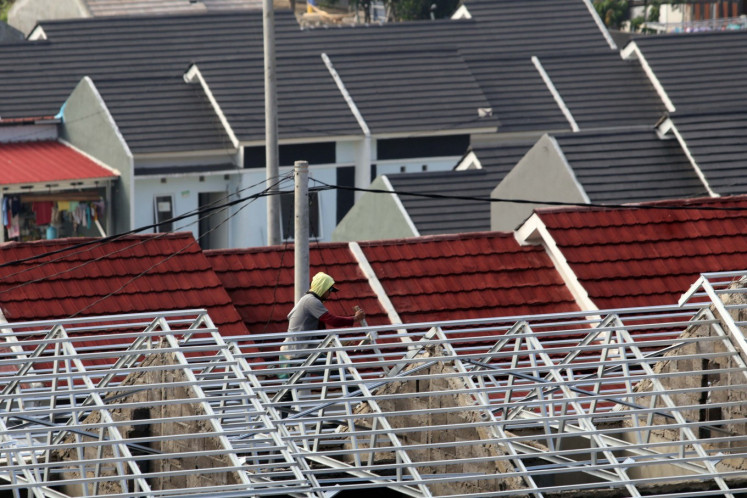Popular Reads
Top Results
Can't find what you're looking for?
View all search resultsPopular Reads
Top Results
Can't find what you're looking for?
View all search resultsDigital dividends fall short of expectations, research reveals
Change text size
Gift Premium Articles
to Anyone
N
ew research on digital dividends has found that the aggregate impact of digital technologies in Indonesia lags behind global expectations and has not yet been evenly distributed, resulting in a disparity in technology among the population.
According to the 2016 World Development Report, Digital Dividends research conducted by the World Bank (WB) Group reveals a significant gender divide in digital usage within Indonesia, in which an average of 78 women to every 100 men in the country use technology, a significantly higher rate compared to Singapore, Thailand or Cambodia.
"Although the internet and digital transformation has made the world a more inclusive, efficient and democratic world, the potential and aggregate impact of the internet is significantly less than what was expected with benefits so far that are unevenly distributed," Research co-director Deepak Mishra said of the overall results.
"So, clearly we're not seeing the big impact in terms of growth, jobs, and service delivery," Mishra told reporters during the report launch event hosted by the Center for Strategic and International Studies (CSIS) on Friday.
The report further indicated that almost 60 percent of the world's population was still not connected, with the benefits of digital technologies mostly seen by those who are educated, well-connected and influential, subsequently causing greater disparity.
Mishra said it was necessary to make the internet universally accessible, affordable, open and safe so that people worldwide could participate and, in turn, maximize digital dividends.
Mishra further said it was important to strengthen "analog complements", a set of supporting elements, which included the need to provide workers with the right skills for the digital economy and to highlight the importance of accountable institutions, adding that this was necessary as a need to close the disparity gap had been found across groups of all ages, incomes as well as gender.
Research co-director Uwe Deichman said the education system implemented today might not benefit Indonesian students in tackling the future of digital economy.
Referring to a case study conducted in Malaysia as an example, Uwe compared to the situation in Indonesia, saying that education needed to adapt as it was one of the most important analog components in the preparation of necessary skills in an economy that had heavily relied on manufacturing and agriculture in the past.
He further said that Malaysia was good at maintaining an interest in education among students. Apart from getting kids into school, it was also necessary to monitor valuable teaching materials, he went on.
To adapt, Uwe said that, as part of updating school systems, teachers should be provided with training. He also suggested implementing new systems in early childhood education as a viable option.
Communications and Information Minister Rudiantara, who provided an opening statement at the launch, pointed out the government's project Palapa Ring, which he said was to provide accessible internet across the archipelago by 2019.
The ambitious project, which will involve laying 11,000 kilometers of undersea fiber-optic cable, has been divided into three sections comprising of West, Central and East packages.
Rudiantara said both the West and Central packages had been confirmed while the East Package was still in a pre-qualification stage.
Currently only five cities in Indonesia have access to high-speed internet: Bandung, Bekasi, Jakarta, Surabaya and Tangerang. Outside of Java, broadband distribution is still relatively poor, with most areas left either without access to Internet or access that comes with a hefty price tag.
Rudiantara said that with better nation-wide access to Internet, he hoped Indonesia could raise its competitiveness in regard to innovation and developing digital content, especially in the South East Asian region.
"Indonesia should be a player, not merely a market," he said. (ebf)










